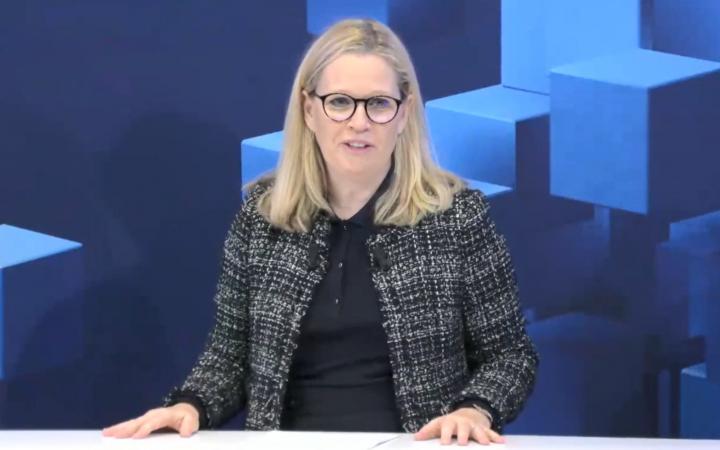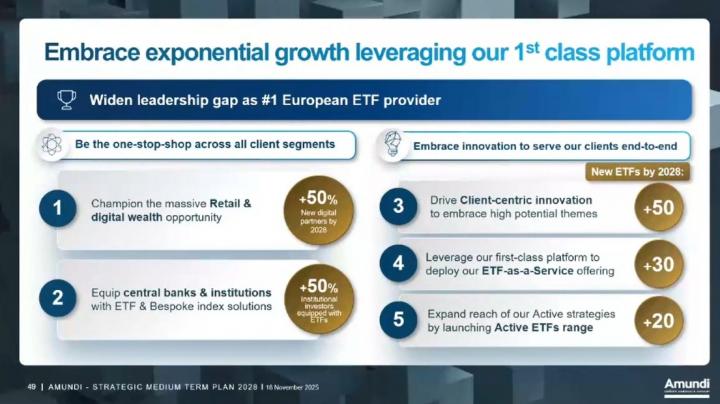
Fund house Amundi presented its strategic three-year plan on Tuesday. It includes a new business line focused on active ETFs and white-label ETFs.
The more than 300 ETFs Amundi has issued since 2001 are growing rapidly. They now account for 314 billion euro in assets under management, compared with 190 billion euro in 2021. “About half comes from the retail segment and the other half from asset owners and asset managers,” said Fannie Wurtz, who leads Amundi’s ETF business, pointing to the diversity of the sources.
Scale is essential, the French asset manager says. The number of “billionaire ETFs” (with at least 1 billion euro under management) has now risen to 79 funds at Amundi. But the appetite is far from satisfied. During its Capital Market Day, Amundi announced plans to launch another one hundred ETFs by 2028.
Fifty of those will be built around specific “themes with strong client potential,” the fund house said. These include ETFs aimed at retirement savings, as retirement products are one of Amundi’s strategic growth areas in the coming years.
Active and white-label ETFs
About twenty ETFs will come from Amundi’s newly sharpened active ETF offering. That segment is growing extremely fast, the firm confirms, and also generates higher fees than passive ETFs: an average of 28 basis points, compared with 19 basis points for the passive variants. According to forecasts from consultant McKinsey, the European market for active ETFs is expected to roughly triple over the next four years.
The other thirty new ETFs will not be launched under the Amundi brand, but under the brand of a partner company. Digital platforms, wealth partners and asset managers are all showing interest in such white-label ETFs, which they can repackage according to their own preferences and sell to their clients.

Amundi calls this white-label service “ETF-as-a-service.” In Germany, financial website Finanzen.net and asset manager Laiqon are already using the model.
Wurtz expects growing ETF demand in the coming years from retail investors, wealth partners, institutional investors and central banks alike. She refered to a report from consultancy firm Oliver Wyman, which expects the number of European retail investors in ETFs to nearly double in the next three years, with Germany as the main market. “A similar acceleration can be seen among asset owners and institutional investors.”
After deal with ICG: mixed products with private components on the way
Amundi also announced that it has acquired a stake of nearly 10 percent in London-based private-markets specialist ICG. This will lead to the development of new products for the wealth segment. In the short term, the partners will launch two European evergreen funds: a private equity secondaries fund and a private debt fund. In the longer term, they hope to achieve deeper cross-fertilization. They are considering, among other things, a blended investment product with a component of publicly listed investments (Amundi) and a component of private investments (ICG).